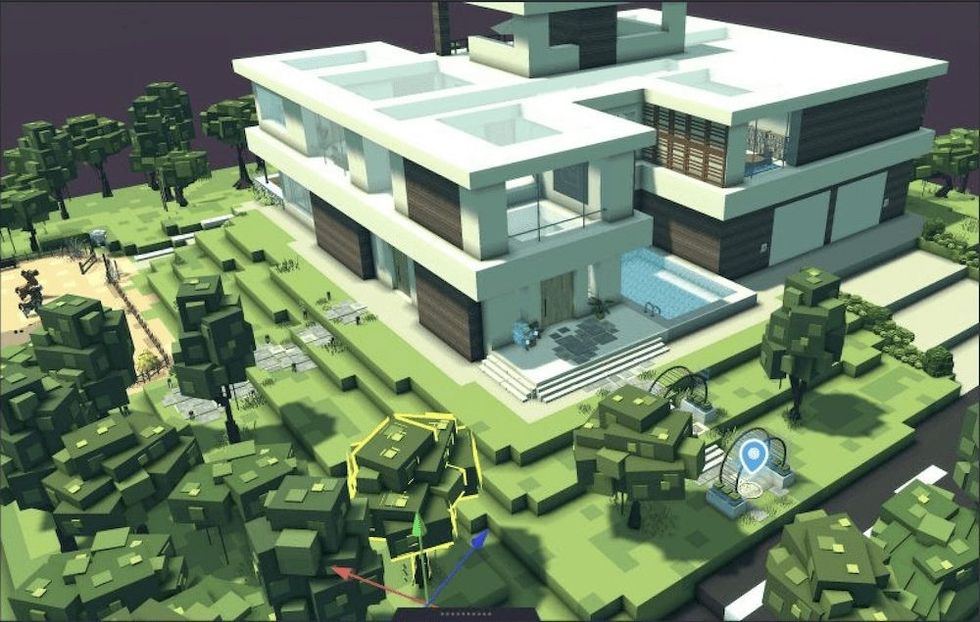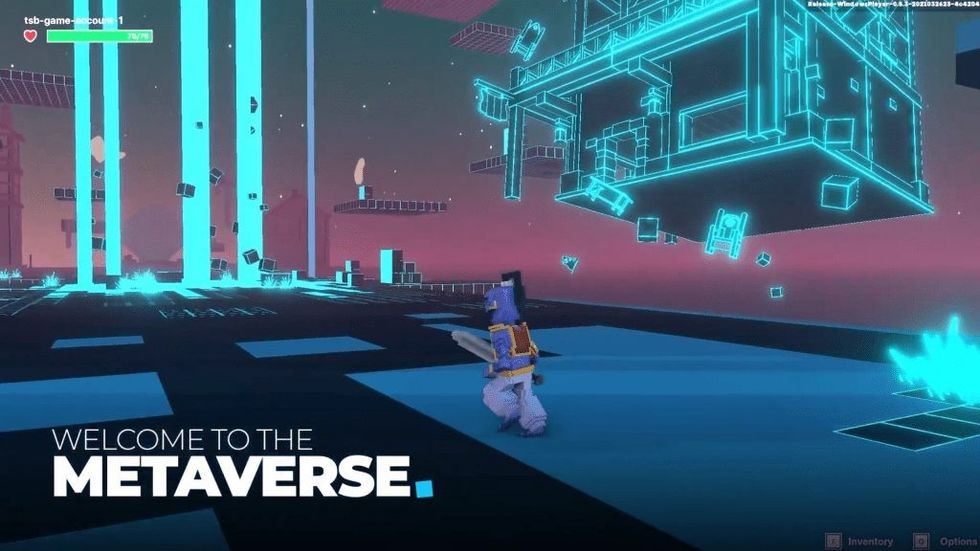You’ve likely heard of the Metaverse, an emerging virtual reality environment where users -- using digital avatars -- can interact with each other and create objects and property, all via a VR headset. Beyond the ability to socialize, hold a conference, or even catch a concert featuring your favourite artist, though, the Metaverse is becoming most known for its investment opportunities, providing the backdrop for the latest cryptocurrency-fueled craze: virtual real estate.
Metaverses work on the idea of an interoperable world, one developed by merging the activities of games like LIFE and The SIMS, where anything you can do in the real world can be replicated and redesigned in your 3D-printed world of choice. These digital assets could be, for example, your music, your clothing, or your property. The marketplace grows through personal use and exchange, just like in the real world. Decentraland, SuperWorld, and The Sandbox, which was recently acquired by the accounting firm PwC for an unspecified amount, are among the most popular virtual spaces to build and barter in.
Real estate within a metaverse isn’t pretty -- it currently resembles the graphics from an 1980s-era video game -- but it’s becoming popular with cryptocurrency and blockchain enthusiasts, who are snapping up these online parcels of “land”. This is because these metaverse platforms are being developed with them in mind, as well as those who are increasingly interested in owning content and expanding their real estate footprint online.
So, How Can You Take Part in the Metaverse?
First, you’ll need to decide which metaverse platform you want to invest in. Each is a bit different; some have land that can only be bought by using a credit card, while others require purchasing a non-fungible token (NFT), which is paid for in cryptocurrency. This token gives you ownership of your asset, which comes in the form of a specific piece of code. You’ll need a digital wallet like MetaMask to store and track your cryptocurrency purchases.
And get ready to be in the presence of some big players, who are sinking serious money into their digital investments. In the last year, a plot of land in Atari’s The Sandbox -- which is a part-virtual real estate, part-amusement park -- sold to Republic Realm, a digital estate investment fund, for $4.3 million. Another lot in AXIE Infinity sold for just under $2.5 million. Recently, the UK investment group Abrdn announced it is working with Citigroup on ways to get people to buy tokens for buildings.
Investing blog The Motley Fool suggests the metaverse will be a $10-trillion to $30-trillion opportunity within the next 10 to 15 years. However, this anticipation is based on the premise that people will spend their time and money to manufacture the metaverse.
Dan Fleyshman is one of those “manufacturers”. He runs a social media agency and co-created a real estate agency called “The Meta Agents” to focus on buying and selling virtual property. He is also the uncle of the man behind the aforementioned $2.5-million metaverse sale, and co-purchased $1 million of virtual land called SPACE in the popular RPG game Big Time. He sees virtual supply and demand as similar to real-life real estate.
“Certain areas will be prestigious like Times Square and other areas will be rural and far away from the main hot spots,” Fleyshman tells STOREYS.
"Some entrepreneurs are already attempting to replicate cities, states, and even the whole planet for people to be able to purchase their virtual home, plus be able to buy other people's virtual homes to resell or rent out," he adds.
ONE Sotheby’s International Realty, perhaps the most recognizable real estate name in the space, is planning to sell a virtual mansion, along with its 11,000 square-foot, brick-and-mortar counterpart in Miami. This NFT-backed “MetaReal” mansion will include seven bedrooms and nine bathrooms, with Voxel Architects mirroring its design within The Sandbox.

These niche virtual worlds are housing events, too, making them all the more attractive. The Sandbox, for example, has announced a partnership with Warner Music Group to create the first music-themed world within a metaverse.
For the most part, though, things in these virtual worlds look more like land-shaped masses with colourful pixels.
Does the Future of Homeownership Lie Within the Metaverse?
Perhaps you’ve increasingly heard of “Web3, web3, or Web 3.0”. Dubbed as the next phase of the internet, this concept rests on peer-to-peer ownership rights of assets, which includes virtual real estate. Blockchain technology, a distributed public ledger that has timestamped transactions, is used to power, fund, and legitimize the metaverse that holds these assets.
The Ethereum blockchain is among the most widely used within the metaverse because of its ability to build and run smart contracts, which automate an exchange by executing code that runs on a blockchain. To do a transaction or function on Ethereum’s network, you pay a "gas" fee in the form of ether (ETH), which is Ethereum’s native cryptocurrency. These fees pay miners, a.k.a the computers running the software that verifies and secures each transaction.
However, as of today, the world just doesn’t have the tech needed to properly scale up these operations; Intel suggests that in order to power an all-encompassing metaverse, a 1,000-times increase in power is needed in our collective computing capacity.
"The metaverse may be the next major platform in computing after the world wide web and mobile," reads a release penned by Intel's Raja Koduri, who went on to highlight that "...our computing, storage and networking infrastructure today is simply not enough to enable this vision."
Fleyshman is also honest about where things are right now.
"The biggest misconception is that 'we’re all going to be living in the metaverse soon'. We're nowhere near close to that, and the vast majority of the population can't afford Oculus glasses, fast WiFi, and all the other components needed to dive into the metaverse," he says. "We're just creating an extension of the real world, and it will have some fun-use cases."






















